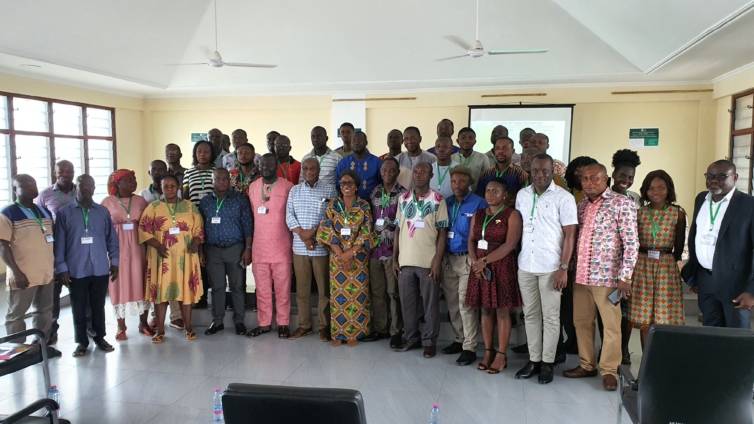Assemblymen in the Kumasi metropolitan are being involved in flood prevention by the Kwame Nkrumah University of Science and Technology's Center for Settlements Studies.
The purpose of the seminar, which was organised in partnership with the Network of Excellence in Land Governance in Africa (NELGA), was to educate the attendees on the many strategies for reducing the likelihood of flooding in their neighbourhoods.
The GIZ-funded NELGA flood land research intended to identify the type of persons who purchase property in flood-prone locations as well as the motivations behind such behaviour.
Additionally, it was intended to make recommendations for and establish flood-risk community adaptation and mitigation plans as well as to gauge public knowledge of the risks involved.
The study was centred on seven areas at high risk for flooding.
The team organised a one-day workshop at the Asokwa Municipal Assembly as part of its flood research efforts to share the results of its most recent investigation into the socioeconomic and demographic characteristics of people who live in flood-prone areas as well as their methods of coping and adaptation.
Meeting men, unit committee members, presiding members, and flood victims from a few high-risk, flood-prone villages in the Greater Kumasi metropolis were all present at the workshop.
Prof. John Bugri, provost of the College of Art and Built Environment, said that if people change their behaviour to avoid flooding, resources may be used wisely.
Additionally, he cautioned those living in flood-prone areas from depending too much on government assistance.
"If we, as human beings, are able to alter the methods in which we go about obstructing the free flow of water by constructing on waterways and the like, then they are indisciplined acts.
"By averting floods and redistributing limited resources, we will be doing ourselves a lot of good.
"You are endangering your own life if you are faced with an issue like floods and the government is unable to come to your rescue and you are also sitting there watching the situation worsen," he continued.
Prof. Divine Ahadzie, the director of the Centre for Settlement Studies, was concerned about the impact of the flood. If you permit floods to occur regularly in the Asokwa municipality, it will be similar to how flooding causes a three percent loss in performances. Every time there are significant floods, the economy performs 3% worse, he claimed.
He also demanded that the government provide assemblymen with equipment so they can support the neighbourhood.
"Unfortunately, we still haven't seen the drive for community action led by the assemblyman since the research two years ago. mostly because they lack the means to do so. So, I believe that going forward, we should really consider how we will provide assemblymen with the resources they need to be able to lead the neighbourhood. And this is the area, in my opinion, where the government should focus, he added.
Akwannuasa Gyimah, the Municipal Chief Executive of Asokwa, expressed his gratitude to the KNUST team for sharing their research.


